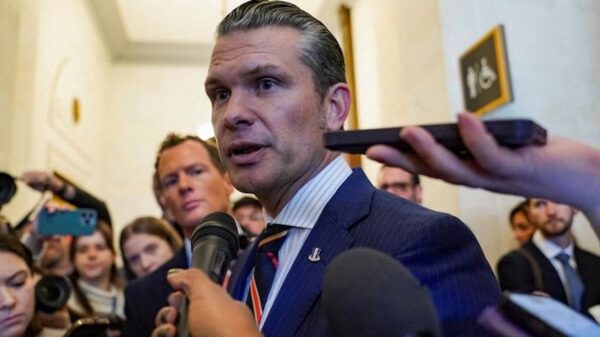UPDATE: Argentine President Javier Milei has suffered a significant electoral defeat in Buenos Aires, as his party, La Libertad Avanza, garnered only 34% of the vote, losing to the left-leaning Peronist opposition, which secured 47%. This setback, described as a “clear defeat” by Milei, comes just weeks before the crucial midterm elections scheduled for October 26.
In a defiant speech to supporters, Milei acknowledged the loss and pledged to continue with his controversial economic reforms. “We suffered a setback, and we must accept it responsibly,” he stated, insisting there would be “no retreat in government policy.” Despite facing mounting public dissatisfaction and a corruption scandal involving his sister, Milei remains committed to his austerity measures, which include slashing subsidies and freezing wages.
The electoral results serve as a crucial barometer for Milei’s popularity, especially ahead of the midterms where half of the Chamber of Deputies and a third of the Senate is up for reelection. Analysts view these elections as a referendum on Milei’s government and its radical libertarian agenda.
Why This Matters: The defeat signals a potential shift in the political landscape of Argentina, with public frustration growing over economic hardships attributed to Milei’s policies. His administration has faced backlash for rising unemployment, high poverty levels, and a bribery scandal. The political stakes are high as Milei needs to expand his party’s influence in Congress to push through further reforms.
Milei’s economic policies, while initially criticized for increasing poverty and unemployment, have led to a decrease in monthly inflation rates, with Argentina’s country-risk index reaching its lowest in five years. However, the public remains restless, as wages lag behind inflation, and essential services suffer.
Opposition leaders are quick to capitalize on Milei’s struggles. Axel Kicillof, the left-leaning governor of Buenos Aires province, declared at a recent rally, “The ballot boxes told Milei that public works cannot be halted… that retirees cannot be beaten.” His comments reflect a growing sentiment that Milei’s policies are out of touch with the needs of ordinary Argentines.
As the nation approaches the midterm elections, all eyes will be on how Milei adapts his strategy in light of this defeat. The upcoming vote will not only test his political resilience but also determine the future direction of Argentina’s economic policies.
What to Watch For: With the midterms on the horizon, Milei must navigate this political turmoil to secure a stronger position in Congress. The outcome could significantly impact his ability to enact his economic vision for Argentina. Voter sentiment will be crucial as the country gears up for this pivotal moment in its political history.
The developments in Argentina are being closely monitored as they could have broader implications for South America’s political climate. Milei’s relationship with allies, including former President Donald Trump, will also be under scrutiny as he attempts to rally support amid growing criticism.
Stay tuned for further updates as the situation evolves and as Argentina prepares for the decisive midterm elections on October 26.






































































